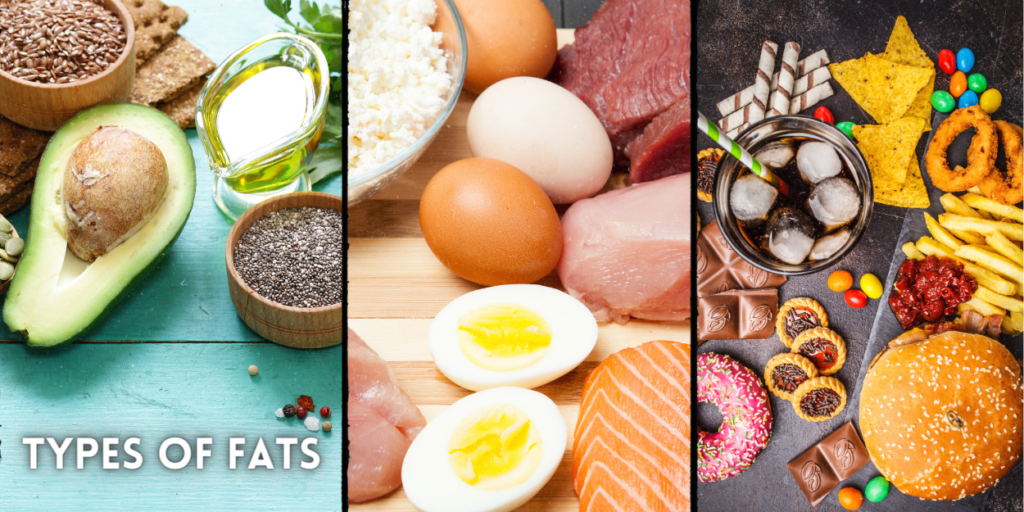Hello and welcome to Part 4 of our email series on Heart Disease! In this post, I’m going to try to present a succinct message on lifestyle changes that have the best data for heart health. Because you can find good information on the internet, I want to be brief on the lifestyle changes that everyone agrees upon. This does not mean that they are any less important — in fact most of what I will talk about here are non-negotiable when it comes to improving your heart. If you really want to prevent disease, you have to attend to these aspects of your life. But I do want to zoom in on diet and physical activity, both of which I find most people find confusion.

Important Lifestyle Factors for Heart Prevention:
- Stop smoking and limit alcohol: Quit smoking is a no-brainer, you just have to do it. Nothing I talk about will do more for your health than this. We also know alcohol is toxic and inflammatory to the heart vessels as well as increases blood sugar and ApoB. Read more about alcohol in this post.
- Any and all forms of exercise is good for the heart. It increases blood flow which increases nitric oxide production which is very helpful for our vessel health. Exercise increases our use of fat for energy, which lowers risks of blood sugar problems. Finally, exercise consistently reduces blood pressure. A 2023 study showed that HIIT exercise twice weekly actually reversed heart disease (that’s a big deal and VERY rare to see in studies). Check it out here: https://pubmed.ncbi.nlm.nih.gov/36562212/
- Good, high-quality sleep: Sleep is anti-inflammatory, reduces stress, and provides the energy/motivation to help improve other areas of your health. Studies have revealed that more heart attacks occur on the day after Daylight Savings Time than on any other day of the year. You can read more about sleep in a previous blog post
- Managing stress: Stress in inevitable and simply a part of life. But your perception of stress (Is the stress I feel bad for me? Overwhelming?) is very important when it comes to your health. Manage stress with spending more time outside in nature, exercising, spiritual practices, breath work, removing/reducing burdens in your life, good sleep, etc.
- Improve metabolic health (diabetes, high blood pressure, body composition, etc): Whether this is lifestyle change, medications, or a combination of the two, we must address risk-enhancing factors quickly, especially ones related to our metabolic health. But what is beautiful about the interconnectedness of the body is that working on heart health will also work on diabetes, blood pressure, and body composition! Fixing one fixes the others, so you may be able to come off medications down the road!
- Get your dental health in order. Surprisingly, periodontal disease is very common cause of chronic, smoldering inflammation that damages the endothelium and allows for heart to disease to propagate. Have regular check-ins with your dentist and pay close attention to your oral and gum health each day.
Let’s talk food!
As above, there is a lot of great information about heart-healthy diets like the DASH and Mediterranean diets. I’ll list out what I think are the three most crucial aspects of diet that benefit the heart but won’t delve too deep into them. Again, this is not to say they are any less important but just that it is information you probably already know. But I want to really focus on the more controversial dietary topics in heart health: Fat.
So what are the basics?
- Focus on whole, minimally processed foods. We must get away from packaged, processed foods and regain comfort with the perimeter of the grocery store. This also means limiting intake of refined flours (breads, pastas, cakes) and added sugar (most drinks, sweets, most packaged foods). Doing this reduces inflammation, lowers risk of insulin resistance, and keeps our calories in check.
- Fiber is crucial. If you think you eat enough fiber in a day, chances are you don’t (and if you do, you could stand to eat more!). Studies are clear that diets high in insoluble fibers (most studies revolve around psyllium husk but likely all fibers are similar) can reduce cholesterol levels and reduce gut inflammation. Plants, fruits, and whole intact grains are the best sources. We talked about a blood test in our precision medicine panel that can tell if more fiber in your diet will help reduce ApoB levels.
- Less salt. The DASH diet has been extensively studied and shows an obvious reduction in blood pressure with lower salt intake. Better blood pressure control equals better heart health. Some people are more or less susceptible to salt and blood pressure (our genetic panels check for this!) but we could probably all stand to consume less. High sodium foods are mostly coming from restaurants, frozen meals, and other processed foods. Salting your food is generally ok, but try to wait on the salt shaker until you’re about to eat. By not salting while cooking, we tend to use less.

Ok, that was great. But let’s get to fat?
And here’s the controversy. Is fat good or bad for me? For starters, fat is a healthy and necessary food group. I think most of us are past the days of demonizing all fats but some of this does still exist in food marketing. What matters when it comes to health is type of fat:
- Polyunsaturated Fat (fish, nuts, seeds) – healthy
- Monounsaturated Fat (olives/oil, avocados/oil, some nuts/seeds) – healthy
- Saturated fat (land meat, dairy products, coconut oil) – let’s talk
The reason that saturated fat is thought to elevate ApoB/LDL levels is through its interaction with the liver. Higher levels of saturated fats in the blood reduce the liver’s ability to properly clear these lipoproteins out of circulation. It’s like the drain in the sink is stopped up, so these lipoproteins build up in the bloodstream. It also seems to rev up the production of ApoB particles. So the sink is stopped up but the faucet is cranked up. Not a great combination.
However, there is some nuance here. Saturated fat is not a singular thing — there are multiple types of saturated fatty acids (i.e. stearic acid, palmitic acid, caprylic acid, and lauric acid). To complicate matters more, each type has a greater or lesser influence on our heart health. I don’t want to get into the specifics of each individual one because all saturated fat foods come as a mixture of these fatty acid types. What we will learn below is that some foods have ratios of these saturated fats that actually have greater or lesser effects on our cholesterol levels.

The Highlights on Saturated Fat and Heart Health
- Highly processed meats are the worst offenders: deli meats, hotdogs, processed foods that contain meat (TV dinners), and certain meat jerkies.
- Butter and heavy cream are likely problematic, mostly because it is highly concentrated fat and very easy to over consume. I think of these products similar to refined flours — they have been processed to a form that requires little effort on our part to digest.
- Milk, cheese, and plain yogurt seem to be neutral when it comes to your heart. If you want full fat in these products, go for it.
- Animal meat is probably a more individualized decision. Leaner cuts of beef, chicken, and pork are probably better choices than fattier cuts of meat (i.e. ribeye, bacon, chicken skin.
- Coconut oil and palm oil do raise ApoB/LDL but we don’t have a lot studies looking at a direct risk to heart disease. These are oils that can be easily replaced by healthier oils like olive or avocado, so I would just err on the side of caution for most of your cooking.
- “Test, Don’t Guess”. If your lab work looks good and you have no evidence of heart disease on imaging, you can probably worry a little less about your saturated fat intake.
Three more points with saturated fats and our overall diet:
- Traditional recommendations state to keep saturated fat <10% of total calories. This is not a helpful metric as few people know what that actually means in a practical sense. Limiting butter, cream, coconut oil, processed meats, and shifting to leaner cuts of meat will probably get you 80% of the way there. After that, it gets very individualized.
- If you limit saturated fats, what you put in its place is extremely important. If you put less meat on your plate but add on an extra scoop of rice or side of French fries, that’s not helping your heart at all. If you’re going to limit saturated fats for heart health reasons, you must add in a heart-healthy choice in its place, like vegetables or avocados or a few nuts. Swapping “bad” for “bad” is still “bad”.
- Calories do matter. Overconsumption of food creates excess energy in the body, which must be stored as fat. This disrupts proper body composition and increases circulating lipoproteins (remember, they are carrying extra fat and cholesterol). For many of my patients who have lowered LDL successfully, reducing their body fat (like visceral fat around the abdominal organs) and increasing their muscle mass has done more for their heart health than limiting a specific food group.
I hope that was a helpful review and cleared the water for many of you when it comes to practical tips to take heart health into your own hands. If you need help with direction, consider our Precision Health or Optimize Body Composition Programs or signing up with one of our health coaches. Next week, we close out with supplements and medications!
Troy Jackson, MD








